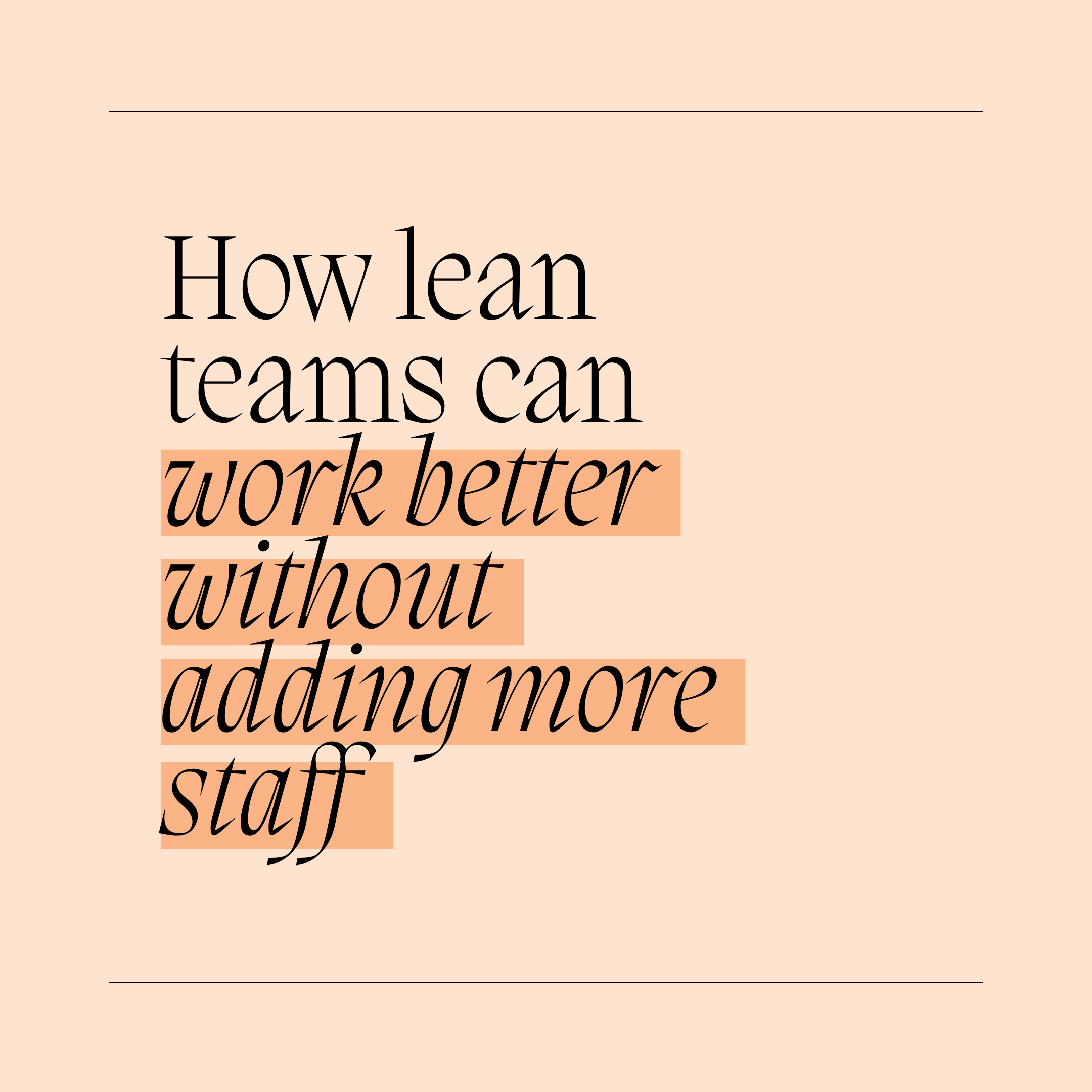How Lean Teams Can Work Better Without Adding More Staff
Running a small team presents unique challenges. With limited hands on deck, everyone tends to juggle multiple roles, and time always seems to be in short supply. However, a lean team doesn’t have to mean limited results. With the right strategies, small teams can be agile, efficient, and incredibly productive.
In fact, smaller teams often have the advantage of speed and flexibility. They can make decisions quickly, adapt to changes faster, and build closer working relationships. The key lies in creating systems that support productivity, maintaining clear communication, and leveraging tools that save time—not add more work.
In this article, we share tips on how small teams can maintain high levels of productivity and efficiency without the necessity of hiring additional staff.
No. 1
Use the Right Tools to Save Time
When resources are limited, eliminating unnecessary steps becomes essential. The right tools can streamline scheduling, task management, document sharing, and communication—freeing up your team to focus on what really matters.
For example, teams in healthcare or wellness industries can benefit from using HIPAA-compliant scheduling software to manage appointments securely and efficiently. Instead of juggling emails or risking double bookings, automated systems handle the logistics, allowing your team to concentrate on delivering value.
No. 2
Keep Communication Open and Simple
Clear communication is the backbone of any successful team, especially when it's small. While fewer people can mean easier collaboration, it only works if everyone stays aligned.
Avoid overloading your team with meetings. Instead, implement simple practices like weekly check-ins, shared calendars, or group chats to keep everyone in sync. These methods reduce misunderstandings and ensure that no task slips through the cracks.
No. 3
Break Big Tasks Into Smaller Steps
Big projects can feel overwhelming when only a few people are responsible for execution. Breaking big goals into smaller, manageable tasks helps prevent burnout and keeps momentum going.
Assign smaller components of a project to individuals based on their strengths. This approach allows the team to make steady progress and ensures that no one feels like they’re carrying the entire load alone.
Monday.com
Your go-to work platform - streamline workflows and gain clear visibility across teams to make strategic decisions with confidence.
No. 4
Focus on What Matters Most
One common pitfall for small teams is trying to do too much at once. Spreading your efforts too thin can lead to missed deadlines and reduced quality.
Instead, prioritize the two or three initiatives that will have the greatest impact. Focusing on high-value tasks ensures that your team’s limited time and energy are directed where they matter most.
No. 5
Build Systems That Support Growth
Strong systems are the foundation of a high-performing small team. These can include checklists, templates, shared folders, and clearly defined workflows that everyone follows.
Having these systems in place creates consistency and reduces confusion. This kind of structure is a big part of building a resilient small business because it lets your team work better under pressure. When things get hectic, your team can rely on these structures to stay organized and maintain productivity.
Takeaways
Small teams can achieve big results when they work smart. By using the right tools, communicating clearly, breaking down tasks, focusing on priorities, and building reliable systems, your team can operate efficiently—even under pressure.
Remember, success isn’t about doing everything—it’s about doing the right things well. With the right approach, your small team can be a powerhouse of productivity and innovation.
Looking for Business Resources?
Are you seeking ways to elevate your business to new heights? Dive into the array of resources provided by our esteemed business partners designed to empower your ventures.































